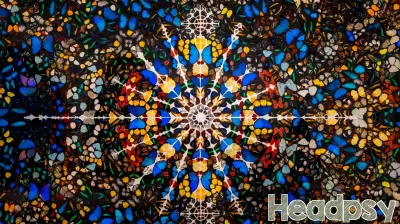The Evolution of Divergent Thinking: Why We Perceive the World Differently
June 16, 2025 - 00:42

Our brains evolved to perceive and interpret the world in diverse ways, a phenomenon known as divergent thinking. This cognitive flexibility is not merely a quirk of human nature; it plays a crucial role in our survival, adaptation, and overall ability to thrive in a complex environment.
Throughout history, individuals who could think outside the box and consider multiple perspectives have often found innovative solutions to challenges, enhancing their chances of survival. This variation in thought processes allows for a rich tapestry of ideas and opinions, fostering creativity and collaboration.
In modern society, this divergence is evident in the way people approach problems, express beliefs, and interact with one another. While it can lead to misunderstandings and conflicts, it also serves as a catalyst for progress, encouraging dialogue and the exchange of ideas. Embracing our differences can ultimately lead to a more harmonious and innovative world, where varied viewpoints contribute to collective growth and understanding.
MORE NEWS

February 21, 2026 - 01:50
Why Babies Are CuteHave you ever wondered why a baby`s face seems to command your attention and care? The answer lies in a powerful evolutionary design. Specific features like large eyes, round cheeks, and a small...

February 20, 2026 - 13:07
Love Eternal’s Uncanny Mix of Precision Platformers and Psychological HorrorThe indie gaming scene continually pushes boundaries, and the upcoming title Love Eternal is a striking example. It fuses the demanding skill ceiling of a precision platformer with the unsettling...

February 19, 2026 - 20:44
Hyperphantasia: When Imagination Is as Vivid as Real LifeFor most, imagination is a gentle whisper of images and ideas. For those with hyperphantasia, it is a roaring, full-sensory experience. This condition represents the extreme upper end of the...

February 19, 2026 - 03:54
What Happens Inside Prof. Frances Frei’s Office HoursWhat happens when leaders drop the performance and bring their real problems? A weekly ritual in trust, candor, and disciplined thinking offers an answer. For years, Professor Frances Frei has...